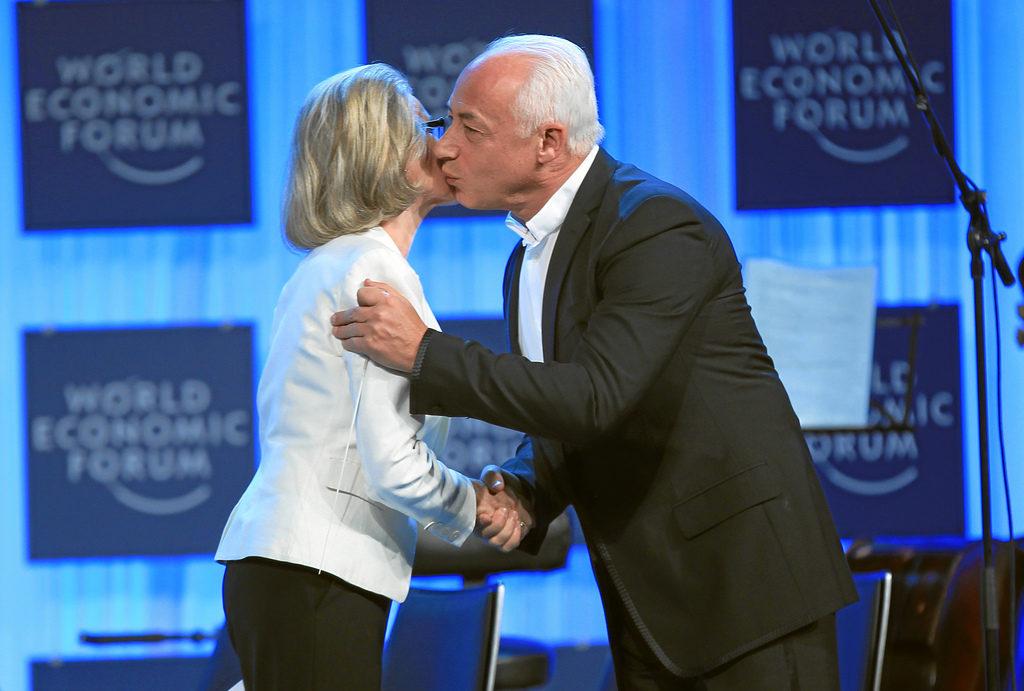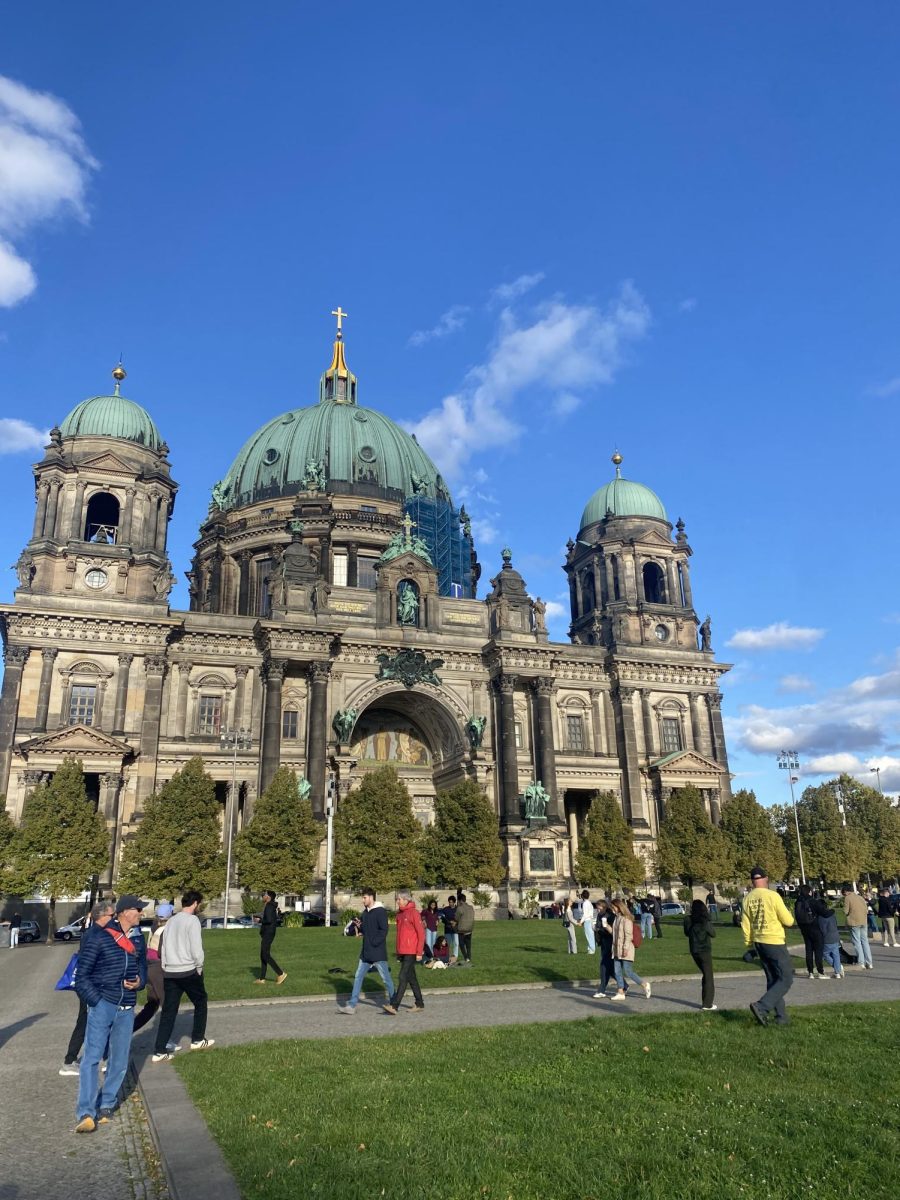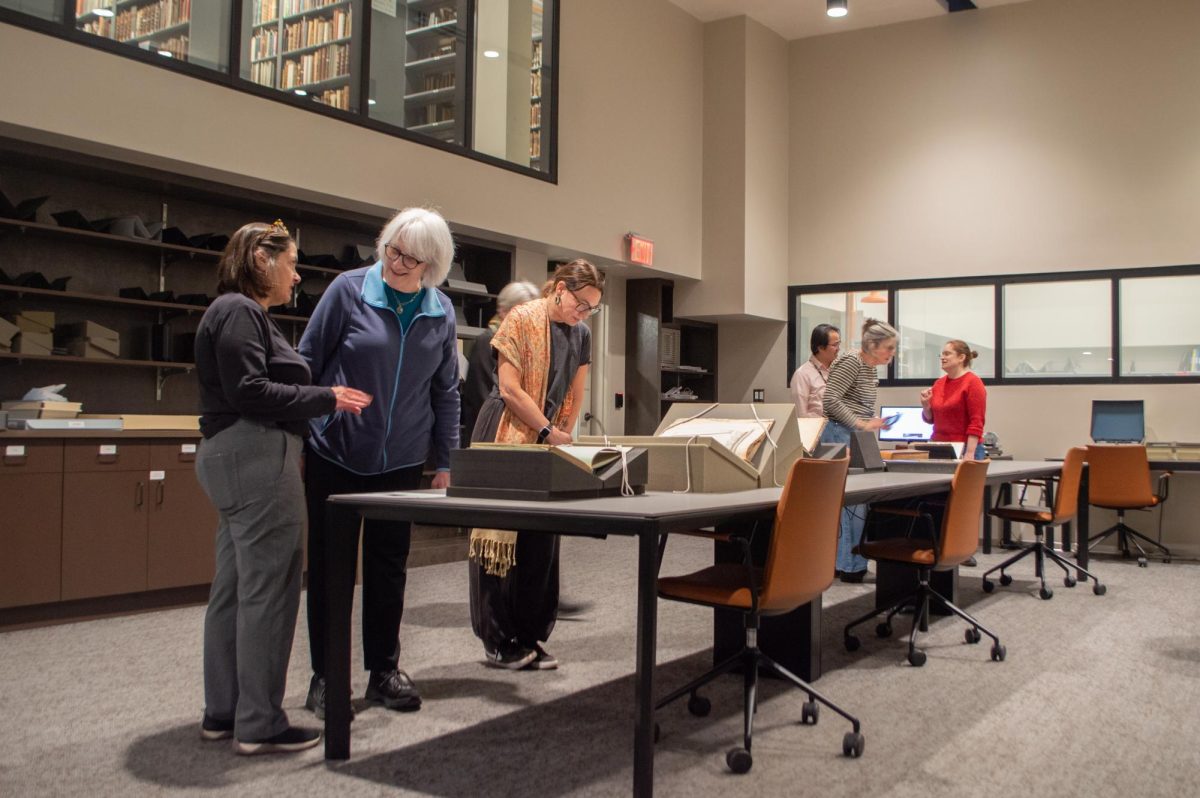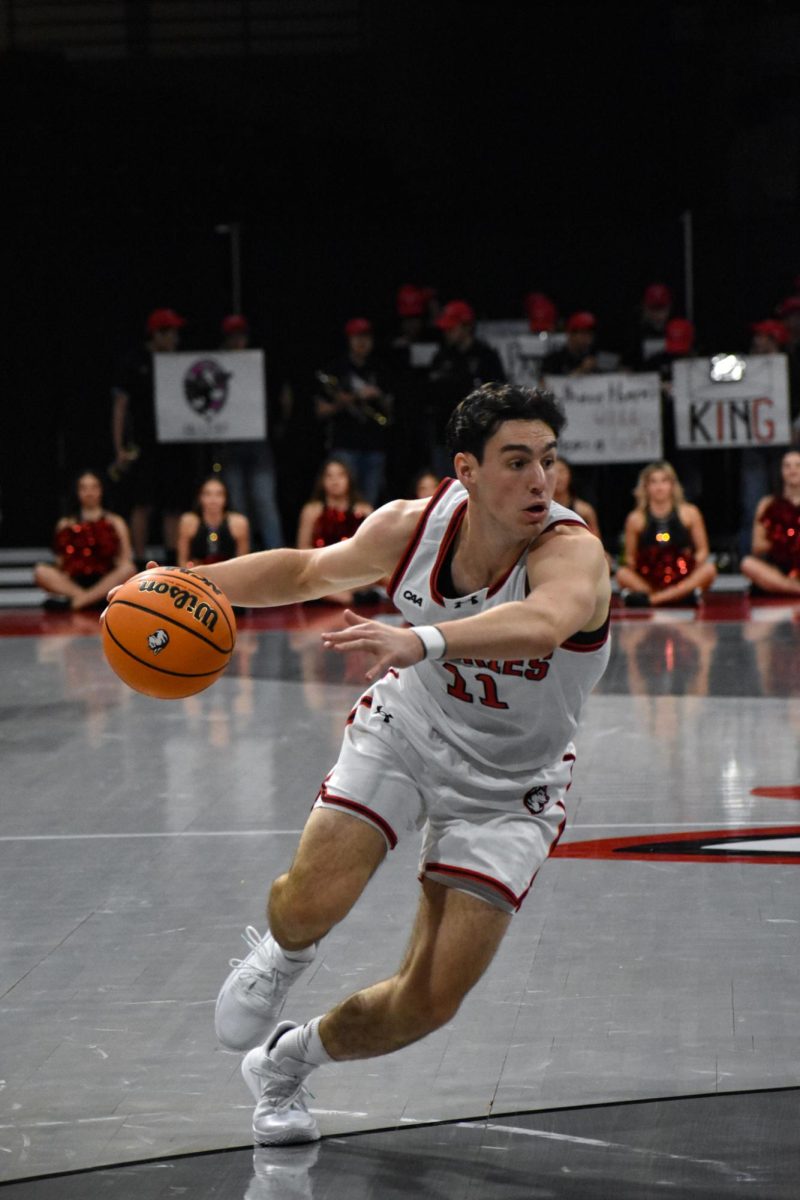By Maxim Tamarov, news editor
“Flowers for the performers,” said the woman handing out yellow and blue carnations across from the bilingual picket line that had formed outside of Harvard’s Sanders Theatre. But Vladimir Spivakov was not the performer she had in mind — it was a fellow Russian activist playing for free further on down the road. Blue and yellow are the colors of the Ukrainian flag.
Spivakov, a famous Russian maestro, and his Moscow Virtuosi Chamber Orchestra performed on Sunday to the

chagrin of activists who gathered to protest the composer’s support of Vladimir Putin’s occupation of Crimea, a Russian-speaking region south of Ukraine.
“While we deeply respect Spivakov as a musician, by signing [his support of Russian involvement in Ukraine] he unjustly used his fame and influence to support and promote aggression,” said the group Music Lovers against Putin’s Aggression in a petition that attempts to cancel the performances of Spivakov’s orchestra.
Crimea has been occupied by the Russian Federation since the ousting of Ukraine’s pro-Moscow president Viktor Yanukovych earlier this year. A referendum, under heavy Russian military supervision, was made for Crimea to be annexed by Russia. Ukraine and the majority of western countries did not recognize this referendum.
Although a beloved musician throughout much of his life, Spivakov has amassed public scrutiny for his involvement in politics.
Spivakov, a Ufa-born violinist and conductor, has been called “one of the elect; a real conductor, with real ideas and the technical means to express them” by the Washington Post. Since he was 13, Spivakov has been recognized as an outstanding violinist, performing in various competitions and recitals throughout the Soviet Union and Eastern Europe.
Recently, Spivakov has made headlines for having signed a letter that supports the Russian Federation’s military occupation of the Crimea region. He is among hundreds of cultural figures who have signed this support.
At the conclusion of Spivakov’s set, Roman Torgovitsky, a Harvard alumnus, ascended the stage to offer the composer a gift, as well as confront him about the issue.
The provocateur said, in Russian, that he is a fan of the maestro as a musician. He then handed Spivakov a Harvard cap, and asked him to renounce his support of Putin’s regime. Torgovitsky later claimed that no other channels of communication were available to reach the composer — so he decided on a drastic public one.
Torgovitsky was escorted off the stage and arrested by the Harvard University Police Department (HUPD). His case was later dismissed in court, according to an article in the Harvard Crimson.
Allegedly, Torgovitsky was not involved with the crowd that had gathered outside Sanders. Yet the outside protesters also found a way to sneak by the large mass of police and presence to reach Spivakov. Prior to the concert, a Ukrainian sympathizer (and face of organization Music Lovers) snuck into the rehearsal room to leave a letter (in Russian) for Spivakov:
“Our action is not against the orchestra — none of them signed the letter supporting the politics of Putin. Our action is not against the audience — among whom will be our friends and acquaintances. Our action is directed only towards Mr. Spivakov and other cultural figures who signed that famous letter.”
Photo courtesy Sebastian Derungs, Creative Commons









